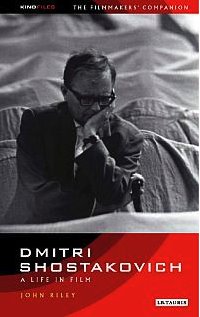
Sometimes the sheer challenge of presenting a work and the exigencies of concert-planning can mean that even the most important ones exist more by reputation.
So it is with Edgar (or, depending on how he felt at the time, Edgard) Varèse. It's impossible to conceive of 20th-century (and even 21st-century) music without him, yet when was the last time you saw anything performed? Ionisation (his greatest hit) needs 13 percussionists for just 6 minutes ("What are they going to do for the rest of the concert?", thinks the administration). So here's a version broadcast on ZDF (BBC4, anyone?)*
And what about the first piece that he admitted into his canon, Amériques, with its 27 woodwind and 29 brass complemented by correspondingly large string and percussion sections? Déserts? The taped "interpolations of organised sound" might put concert halls off (though on the up-side it only needs twenty performers) but that doesn't explain why Pierre Boulez omitted them from his first recording. And then, again, from his second.
So a big welcome for the South Bank Centre's mini-fest Varèse 360, which doesn't just play the music (including a couple of UK premieres) but has added stagings and video projections.
I haven't seen it yet but it's entirely in keeping with Varèse's ideas:
 another of his classics, Poème électronique, was written for the Philips Pavilion at Expo '58 in Brussels, where it was broadcast through 350 or 400 speakers in a stomach-shaped space designed by Le Corbusier's assistant (later a composer) Iannis Xenakis. Le Corbusier himself oversaw the accompanying images and film clips. Though the pavilion itself was dismantled, we do have various designs, notes and stills and a stereo version of Varèse's composition, so that it was possible to make a sort of virtual recreation.
another of his classics, Poème électronique, was written for the Philips Pavilion at Expo '58 in Brussels, where it was broadcast through 350 or 400 speakers in a stomach-shaped space designed by Le Corbusier's assistant (later a composer) Iannis Xenakis. Le Corbusier himself oversaw the accompanying images and film clips. Though the pavilion itself was dismantled, we do have various designs, notes and stills and a stereo version of Varèse's composition, so that it was possible to make a sort of virtual recreation.Among Varèse 360's sidebar events is a screening of the 1920 Dr Jeckyll and Mr Hyde (an uncredited Varèse played a police officer), for which Scanner has sampled the composer's works to create a new score. Safe to say that it's very different from whatever Hugo Riesenfeld might have written for the original release.
Varèse has fared a bit better on disc. Given that two, admittedly very full, CDs will seal the deal, pretty much any single disc (and actually there have been quite a lot) constitutes a significant collection, while shorter pieces like Ionisation and Density 21.5 for solo flute turn up on a number of compilations.  But there have been several more or less complete surveys starting with Robert Craft, graced with a great psychedelic cover, but, like his equally pioneering Webern set, occasionally more enthusiastic than accurate. After that came [not comprehensive and in no particular order] Pierre Boulez, Kent Nagano and Christopher Lyndon-Gee.
But there have been several more or less complete surveys starting with Robert Craft, graced with a great psychedelic cover, but, like his equally pioneering Webern set, occasionally more enthusiastic than accurate. After that came [not comprehensive and in no particular order] Pierre Boulez, Kent Nagano and Christopher Lyndon-Gee.
 But there have been several more or less complete surveys starting with Robert Craft, graced with a great psychedelic cover, but, like his equally pioneering Webern set, occasionally more enthusiastic than accurate. After that came [not comprehensive and in no particular order] Pierre Boulez, Kent Nagano and Christopher Lyndon-Gee.
But there have been several more or less complete surveys starting with Robert Craft, graced with a great psychedelic cover, but, like his equally pioneering Webern set, occasionally more enthusiastic than accurate. After that came [not comprehensive and in no particular order] Pierre Boulez, Kent Nagano and Christopher Lyndon-Gee.  Riccardo Chailly (carrying the imprimatur of Varése's amanuensis Chou Wen-chung) includes a couple of byways that are otherwise unobtainable and presents the original version of Amériques - Varèse's later, less resource-heavy version is generally performed. But even without those, Chailly's is the single set to get.
Riccardo Chailly (carrying the imprimatur of Varése's amanuensis Chou Wen-chung) includes a couple of byways that are otherwise unobtainable and presents the original version of Amériques - Varèse's later, less resource-heavy version is generally performed. But even without those, Chailly's is the single set to get.  For historical interest, you can also get the boxily recorded Frederic Waldman etc al "volume 1" (there was no volume 2) that inspired Frank Zappa.
For historical interest, you can also get the boxily recorded Frederic Waldman etc al "volume 1" (there was no volume 2) that inspired Frank Zappa.For those who want a preview, I'll be presenting two one-hour shows as an introduction to Varèse and his works on Resonance 104.4fm (8pm on Wed 14 and Thurs 15 April). Then we'll glue them together and broadcast a single two-hour extravaganza at some point in the future.
 *There's also a performance by the Ensemble InterContemporain and Boulez on Youtube: it sounds better but the close-ups and panels that come and go made me concentrate on the individual performer (actually, usually their hands) rather than the whole ensemble.
*There's also a performance by the Ensemble InterContemporain and Boulez on Youtube: it sounds better but the close-ups and panels that come and go made me concentrate on the individual performer (actually, usually their hands) rather than the whole ensemble. 
No comments:
Post a Comment